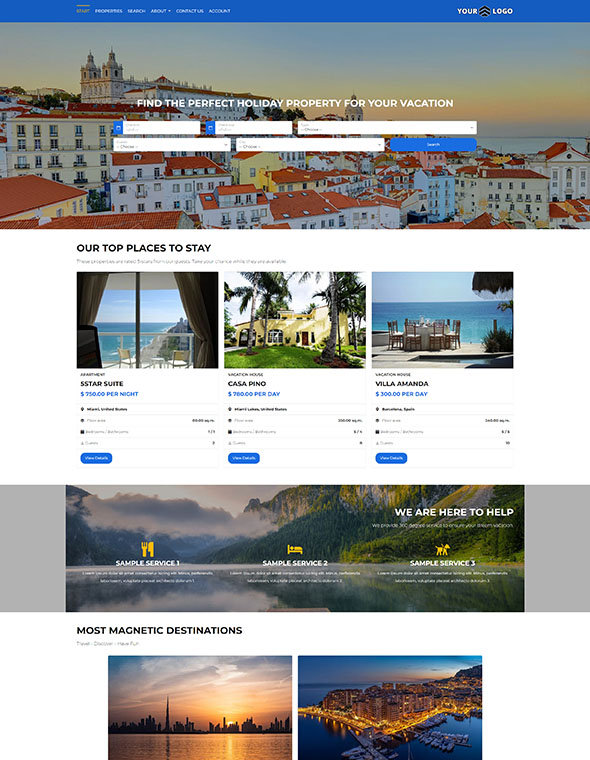The global car rental industry is undergoing a critical shift, aligning with broader climate goals and rising environmental expectations from regulators and consumers alike. Sustainability is no longer a fringe consideration—it is a business imperative. One powerful enabler of this transition is the integration of fleet management solutions. These tools, once considered useful primarily for optimizing logistics and improving cost-efficiency, are now emerging as key allies in the pursuit of greener operations.
The Pressure to Go Green

Car rental companies operate at the intersection of transportation and customer service, two industries under intense scrutiny in the face of climate change. With road transportation contributing nearly one-fifth of global carbon dioxide emissions, fleet operators are being called to action. In response, many companies are exploring sustainability strategies ranging from vehicle electrification and improved fuel efficiency to optimized route planning and reduced idle times.
The growing adoption of environmental, social, and governance (ESG) frameworks by investors and corporate stakeholders further amplifies the demand for measurable sustainability efforts. Consumers, too, are making greener choices—choosing hybrid or electric rental options and favoring companies with visible environmental commitments.
Yet, the path to sustainable car rentals involves more than just acquiring electric vehicles (EVs). It requires an overhaul in how fleets are managed, monitored, and maintained. This is where fleet management solutions become indispensable.
Benefits of using car rental software include improved efficiency in scheduling and maintenance, real-time tracking of vehicles for better utilization, and data analytics for informed decision-making. These software solutions can also help rental companies reduce costs, increase customer satisfaction, and ultimately contribute to a more sustainable transportation industry.
Defining Fleet Management Solutions

Fleet management solutions refer to a suite of software tools and systems designed to oversee, control, and optimize fleet operations. These platforms help manage vehicle acquisition, maintenance schedules, driver behavior, fuel usage, GPS tracking, and data analytics.
In the context of sustainability, these systems support efforts to reduce fuel consumption, minimize emissions, and maximize the lifecycle of each vehicle. They offer real-time data that informs better decisions—turning sustainability from a theoretical goal into an operational reality.
Optimizing Fuel Efficiency and Emissions

One of the primary environmental benefits of fleet management solutions lies in reducing fuel consumption. Through features like telematics, route optimization, and engine performance monitoring, these systems help identify inefficient driving behaviors such as speeding, excessive idling, and harsh braking—all of which contribute to higher emissions.
By analyzing real-time data, car rental businesses can modify driver practices, automate alerts for maintenance issues, and plan more efficient routes. For instance, rerouting a vehicle to avoid traffic congestion not only saves fuel but also reduces the vehicle’s carbon output.
The best fleet management solutions offer predictive analytics that anticipate when a vehicle might become less efficient due to mechanical wear, allowing proactive servicing. This ensures vehicles remain in top condition, emitting less COâ‚‚ and operating within sustainable thresholds.
Supporting Vehicle Electrification
Electrifying a car rental fleet is a bold but increasingly necessary step. However, transitioning to electric vehicles introduces unique challenges—charging infrastructure, range limitations, battery maintenance, and load balancing during peak usage periods. Fleet management platforms address these concerns through integration with EV monitoring systems.
These tools allow managers to track battery levels, schedule charging times during off-peak hours to reduce grid impact, and plan routes that consider charging station locations. More advanced systems even predict how external factors like temperature and terrain might affect range and battery degradation.
Additionally, data from these platforms helps rental companies determine which locations or customer segments are best suited for EV deployment. This granular visibility mitigates the risks of underutilization and aligns electrification strategies with actual demand patterns.
Lifecycle Management and Sustainable Procurement

Sustainability extends beyond day-to-day operations. Fleet management solutions also assist in holistic vehicle lifecycle management—from acquisition to retirement. Data on vehicle performance, maintenance costs, and utilization patterns helps identify the optimal time to replace a vehicle, preventing overuse that leads to excessive emissions or underuse that wastes capital.
Sustainable procurement practices are supported by insights into how different vehicle models perform under varying conditions. Rather than relying on generic specs, fleet managers can base purchasing decisions on real-world data—selecting models that combine performance with low environmental impact.
Furthermore, end-of-life vehicle disposal can be tracked and managed through these systems, ensuring responsible recycling and minimizing the environmental footprint of retiring fleet assets.
Enhancing Regulatory Compliance
Environmental regulations in the transportation sector are becoming more stringent across many jurisdictions. Car rental businesses must now demonstrate compliance with emission standards, safety checks, and fuel economy benchmarks. Fleet management solutions provide the documentation and reporting needed to meet these requirements.
By consolidating records related to fuel consumption, vehicle emissions, and service logs, these platforms simplify audits and regulatory reporting. They also send timely alerts about upcoming inspections or necessary upgrades, ensuring continuous compliance and avoiding fines or service disruptions.
In regions with specific green certifications or tax incentives tied to sustainability practices, detailed data from fleet systems can be used to qualify for financial and reputational benefits.
Promoting Driver Accountability and Eco-Conscious Behavior
Drivers play a crucial role in a fleet’s environmental performance. Fleet management systems enable data-driven coaching, providing feedback on driving styles and behaviors that affect fuel efficiency and emissions. Gamification features and performance scoring encourage drivers to adopt more eco-friendly habits, such as smooth acceleration, speed regulation, and engine shutoff during extended idling.
Many companies have introduced incentive programs linked to these metrics—rewarding drivers who consistently demonstrate sustainable practices. This not only reduces the environmental impact but also fosters a culture of responsibility and awareness across the workforce.
The market for fleet management software has expanded significantly in the last several years. At a compound annual growth rate (CAGR) of 17.5%, it will increase from $24.04 billion in 2024 to $28.24 billion in 2025. This growth is driven by the increasing demand for efficient fleet operations and the need to reduce fuel consumption and emissions. As technology continues to advance, fleet management software will play a crucial role in helping companies achieve their sustainability goals.
Data-Driven Sustainability Metrics
A key advantage of using digital fleet tools is the ability to track sustainability KPIs in real time. Metrics such as COâ‚‚ output per kilometer, average fleet fuel efficiency, total idle hours, and maintenance-related emissions can all be measured, analyzed, and visualized through dashboards.
These insights are invaluable for internal decision-making and external communications. Whether publishing a corporate sustainability report or responding to a stakeholder inquiry, companies with access to accurate environmental data are better positioned to demonstrate progress and accountability.
Car rental marketing strategies can also be enhanced by showcasing these sustainability KPIs, appealing to environmentally-conscious customers and setting the company apart from competitors. Additionally, incorporating these metrics into marketing materials can help build trust and loyalty among consumers who prioritize sustainability in their purchasing decisions.
Integration with Broader Business Systems
Sustainability in fleet operations doesn’t happen in isolation. It must be aligned with inventory systems, customer booking platforms, human resources, and even financial management. The best fleet management solutions offer integrations with other enterprise tools, enabling sustainability efforts to be embedded into the wider business strategy.
For example, linking vehicle availability data with customer preferences allows the system to prioritize greener vehicles for environmentally conscious clients. Similarly, integrating with CRM platforms can enable automated messages that educate users about the company’s sustainability practices or provide eco-driving tips.
Challenges and Considerations
While fleet management technology offers robust sustainability benefits, implementation comes with challenges. Initial setup costs, staff training, and system integration can pose hurdles—especially for smaller rental businesses. Additionally, data overload can occur without proper analytics or dashboards that translate raw figures into actionable insights.
There’s also the risk of over-relying on technology without addressing cultural or operational issues. For example, even the most advanced system cannot compensate for a lack of employee engagement or inconsistent policy enforcement. Sustainability efforts must therefore be comprehensive, combining technology with leadership commitment and continuous improvement.
A Forward-Looking Strategy
The road to sustainable car rentals is not a straight path—it requires a blend of innovation, accountability, and adaptability. Fleet management solutions provide the digital infrastructure needed to navigate this journey effectively. By leveraging these tools, car rental companies can reduce emissions, extend vehicle lifespans, and align operations with environmental expectations.
Importantly, these benefits are not just ecological—they’re also economic. Efficient fleets are cheaper to run, better at meeting demand, and less vulnerable to regulatory penalties. As such, going green is not just good ethics—it’s sound business strategy.
For rental businesses seeking a competitive edge and a meaningful role in the fight against climate change, adopting the best fleet management solutions should be a strategic priority. These tools do more than streamline logistics—they empower the industry to drive toward a cleaner, smarter future.











